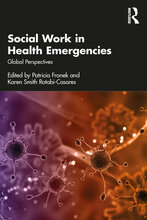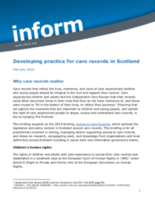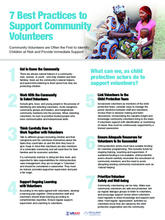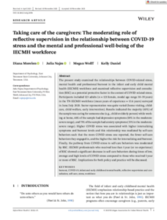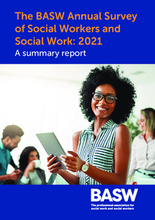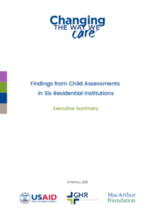Displaying 41 - 50 of 477
This is the first comprehensive book that provides accessible, international knowledge for practitioners, students and academics about social work in health emergencies and spans fields of practice across world regions with particular reference to the COVID-19 pandemic. The book is relevant to a wide range of audiences, including practitioners, educators and students in social work, human services, international development and public health, as well as policy makers and researchers.
The aim of this report is to fill a knowledge gap by examining the points of interaction between climate change impacts and the amount, distribution, and conditions of unpaid care work. We focus on care workers rather than those who are cared for, while stressing the relational nature of care and acknowledging
that carers too require care.
This CELSIS briefing builds on the 2019 briefing, Access to Care Records, which outlined the legislative and policy context in Scotland around care records. This briefing is for all practitioners involved in writing, managing and/or supporting access to care records, and draws on research, campaigning work, and knowledge from organisations and local authorities across Scotland including in social work and information governance teams.
A poster for Child Protection teams to emphasize the evidence based practices of engaging volunteers that were documented in the research.
his study examined the relationships between COVID-related stress, mental health and professional burnout in the infant and early child mental health (IECMH) workforce and examined reflective supervision and consultation (RSC) as a potential protective factor in the context of COVID-related stress.
This article explores responses of 41 UK social workers to ethical challenges during the COVID-19 pandemic, utilising UK data from an international qualitative survey and follow-up interviews in 2020. Challenges ranged from weighing individual rights/ needs against public health risks, to deciding whether to follow government/agency rules and guidance.
In this summary report, the British Association of Social Workers (BASW) presents the findings of its 2021 annual survey providing an insight into the state
of the profession, the views of social workers and student social workers on key topics and the ongoing impact of working during the COVID-19 pandemic and beyond. The survey was launched in December 2021 as a place for social workers to reflect on their profession and their experiences in the preceding twelve months.
The study aims to develop specific practical recommendations for changing the knowledge, attitudes, and practices of the target groups in order to prevent child-family separation and remove existing obstacles children and families face during rein
The purpose of the evaluation is to strengthen the training program for child and family protection personnel in coordination with recent programmatic, legislative, and methodological developments at national and international levels, and to effectively contribute to improving the quality of services for vulnerable children and families by improving the competencies of professionals in the system.
The purpose of the individual assessment of 184 children in six RIs was to collect up-to- date information on the demographics, as well as the social, educational, psychological, and medical status, of children placed in RIs in order to plan their reintegration into their families of origin and/or to prepare them to transition from residential to family care.

